
Q: I’ve been weight training for about a year. I’m a small guy—138 pounds, 5’ 7” with a 38-inch chest and 12-inch arms. I’d love to get cut but also get to a 40-inch chest and 13-inch arms. I work out four or five days a week on a split routine with one-hour sessions of slow, strict reps. I calculated my daily calories at 2,400, with 200 grams of protein consisting of whey, chicken and steak. My question is, Can a small guy like me—with poor genetics—reach my goals? Should I eat more?
A: I’d recommend that you train only about three to four days each week, and you should always try to train a little heavier. You mentioned that you’re doing slow, strict reps. Concentrate on getting stronger by doing six to eight reps, and sometimes only three to five reps. When you get stronger on the basic movements, you’ll get bigger.
When you do your repetitions very slowly, you feel the movement in the muscle more, but you limit the amount of weight you can use. In order to lift heavier weights, you have to use a lot of power during the exercise. That comes from lifting the weights faster and accelerating through the movement.
Lifting a heavy resistance that limits the repetitions to six to eight per set will develop the fast-twitch muscle fibers, which are most responsible for growth. Using a lighter resistance for more repetitions won’t develop those fibers as effectively.
Another thing to consider is that you have to lift heavier weights in order to get stronger. If you keep lifting light-to-moderate resistance, you won’t challenge the muscles enough to get stronger. If you want bigger muscles, you need to lift bigger weights.
When I was trying to get bigger, I always used a resistance that limited me to six to eight reps and, occasionally, three to five. After warming up, I used a weight that I could lift for eight repetitions. For my next set I used a weight that limited me to six reps. For my last heavy set I either did another six reps or used a weight with which I could get only three reps and had my training partner help me get another two or three. Those forced reps with a very heavy weight helped me to get stronger and overcome my sticking point.
Another important point is to focus on the basic exercises. Don’t waste your time doing isolation movements, which train basically one muscle at a time. Use exercises that involve several muscle groups. That will enable you to use more weight, which will help you become bigger and stronger.
Squats, front squats, leg presses and hack squats for the quads and stiff-legged deadlifts for the hamstrings are great basic exercises. For the upper body, flat-bench and incline presses for the chest and barbell rows, T-bar rows, chins and deadlifts for the back are very effective basic movements. For the shoulders and arms use military presses, clean and presses, shrugs, dips, close-grip bench presses and barbell and dumbbell curls.
In terms of diet, protein is important, as that is what rebuilds muscle tissue. If you’re eating 200 grams of protein at 138 pounds bodyweight, that’s almost 1.5 grams of protein for each pound (138 x 1.5 = 207). Chicken, steak, turkey, eggs, fish and so on are all good protein sources. For your protein powder, I recommend one that is a combination of egg and whey proteins like Pro Complex from Optimum Nutrition or just straight casein protein for a slower absorption rate.
The main thing for you to concentrate on is increasing your calorie intake until you start gaining weight and size. Exactly how many calories you will need is unique to you. It may take 3,000 calories, or it may take more.
Make sure you eat at least two to three grams of carbohydrates for each pound of bodyweight. For you that would be 276 to 414 grams of carbs each day. Also, increase your intake of essential fatty acids, which are found in flaxseed oil, salmon and sardines, and monounsaturated fats, which are found in nuts and peanut butter. Fats have nine calories per gram, so eating more fats is a great way to increase your calories.
If you ate 200 grams of protein per day, that would amount to 800 calories. If you ate three grams of carbohydrates for each pound of bodyweight per day, you would be eating 414 grams of carbs, or 1,656 calories. If you ate 60 grams of good fats, you would be consuming another 540 calories each day. Adding it all up, that comes out to 2,996—close to 3,000 calories per day.
When I was bulking up, I had to eat almost 5,000 calories every day to get bigger and gain weight. As long as you balance that eating with an intense weight-training program that includes heavy basic exercises done for six to eight reps, you will put on more muscle and weight.
Editor’s note: John Hansen has won the Natural Mr. Olympia and is a two-time Natural Mr. Universe winner. Visit his Web site at www.NaturalOlympia.com. You can write to him at P.O. Box 3003, Darien, IL 60561, or call toll-free (800) 900-UNIV (8648). Look for his new DVD, “The Natural Bodybuilding Seminar,” along with his book, Natural Bodybuilding, and his training DVD, “Real Muscle,” at www.NaturalOlympia.com. Also available from Home Gym Warehouse, (800) 447-0008 or www.Home-Gym.com. IM












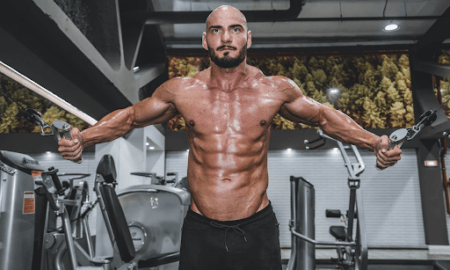
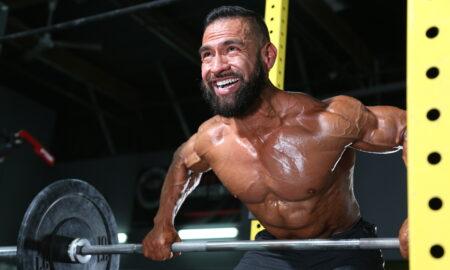
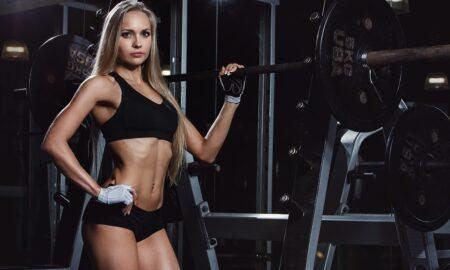
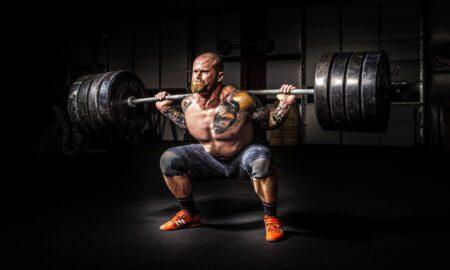
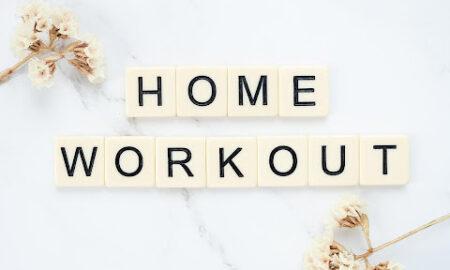


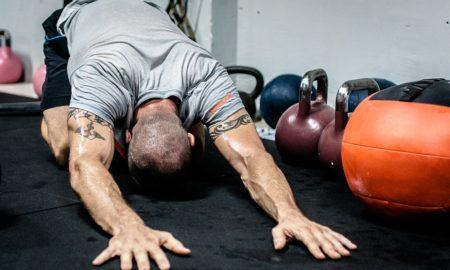
You must be logged in to post a comment Login